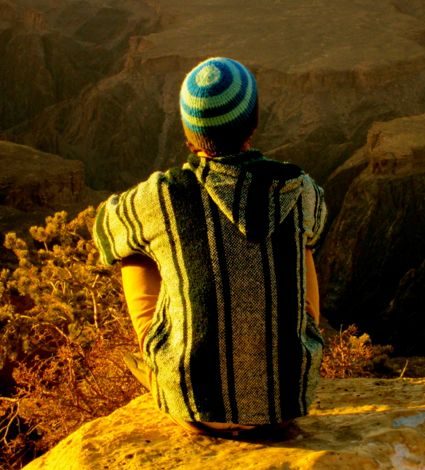‘When someone sees that he (or she) is in danger of losing his (or her) soul, he (or she) does not need to ask advice… Abba Poemon
 The desert Ammas (mothers) and Abbas (fathers) of the 4th and 5th centuries were monks and nuns without ordination or certificates. They were under no Bishop and answered to no council. It was precisely for this reason that the organizing church and its hierarchy in the 5th and 6th centuries began to wipe out desert monasticism as it had grown up; and replaced it with monks and nuns under the power of a Bishop in stone monasteries from the 6th to the 16th centuries.
The desert Ammas (mothers) and Abbas (fathers) of the 4th and 5th centuries were monks and nuns without ordination or certificates. They were under no Bishop and answered to no council. It was precisely for this reason that the organizing church and its hierarchy in the 5th and 6th centuries began to wipe out desert monasticism as it had grown up; and replaced it with monks and nuns under the power of a Bishop in stone monasteries from the 6th to the 16th centuries.
But back in the day, when the great monks and nuns were able to fly under the radar of power and prestige, they were great and powerful spiritual thinkers. Living in caves and in what we would now call “off the grid,” they would go to a cave and “become lost to all but God.” Each Abba and Amma would usually have a student or “disciple” living in the cave with them or in a cave nearby. I remember visiting those monks on Mount Athos (many in that tradition still live in caves, and one such monk was a friend of mine) and I could see the piles of bones in the back of the cave of the monk with whom I ate a tomato, a cucumber and some conversation. The monk would point to the back of the cave every time he mentioned a saying of his teacher, because in the desert monastic tradition, the Abba’s bones, upon death and dehydration, would be pushed to the back of the cave to be with the previous monks of that cave. The tradition of being with and staying with your “teacher” was a part of the formation process – “stay – especially when it is hard, since staying when it is hard is part of the teaching.” They would say to their students.
But even great Abbas like Abba Poemon allowed for the very real possibility that your “teacher” was a lunatic or your work was soul-killing.
Whether from a head injury, a personality disorder or simply the spiritual pride of being sought-out or powerful, a desert father could become deranged (as some clergy do even in these modern times). Sexual repression, exhaustion in the pride inherent in over-work, addictions, personality disorders – these and many more mental illnesses will sometimes take over a leader to terrible effect on their “followers” and such was also the case in the 3rd and 4th centuries.
In a story from Abba Poemon, the desert father tells the story of a seeker asking Peoemon if he may leave his “teacher” because of some kind of mental or physical abuse which, over time, inclined him to feel that he was “losing his soul.” After asking three times the Abba says “Do what you must.” And the student escapes his “teacher.” The abba’s advice was “get out! When your soul is in danger.” The Abba was aware that there is a line to be drawn between devotion and departure. Such is also the case with spousal, institutional or parental abuse. “Get out” was the Abba’s answer.
This all sounds so dramatic. What about the rest of us? What kinds of things “kill our soul?” Into what sort of “soul-killing” experiences do we find ourselves in one morning – previously unaware? When you realize that your soul is being killed by someone or something, you suddenly can never un-know it. What then? What happens in that ”wound” of knowledge.?”
In the end, I think we know soul-threat when we see it or feel it. Perhaps it is a failed relationship. Perhaps it is a dead vocation, or a murdered one. Perhaps it is a desiccated marriage or a friendship which has rotted, slowly from the inside like necrosis of the abdomen in a human body. And yet, perhaps it is something as simple and non-violent as over-work or exhaustion.
Regardless the source of the soul-killing, what Abba Poemon is saying is that, when you can see that something you are doing or involved in is killing your soul, you need no permission – you simply must just get out.
Getting out is not as easy as it sounds. A battered spouse without an income or savings? A battered employee with a mortgage and without a job? An impressive civic leader without an impressive bio of board memberships. An internally or emotionally insecure person without the status of his or her job or reputation? A battered minister without a glowing reference? What do they do? How do they live?
The departure can be hard, gut-wrenching even. And the departure will leave the ones who remain saying some very unkind things because, of course, they are worried about their own choices to remain. One sees this often when a monk or nun leaves a monastery or when a priest renounces his vows. The nuns and monks “murmur,” which Benedict called the “cancer of the religious and spiritual life.”
But go, one must! And fast. And without looking back. Would you stay in a building on fire? Why then stay in a relationship which is on fire?
Each of us is the curator of one life with God. There are only the Trinity and we in this relationship. Everyone else’s opinion is just that, an outside opinion.
But what the desert mothers and fathers said, based on their own decision to leave and find a cave or a desert or a cabin somewhere, was that when something – even something you love – is killing your soul, you must live the truth and leave – save yourself – cost what it will and lead where it may.

